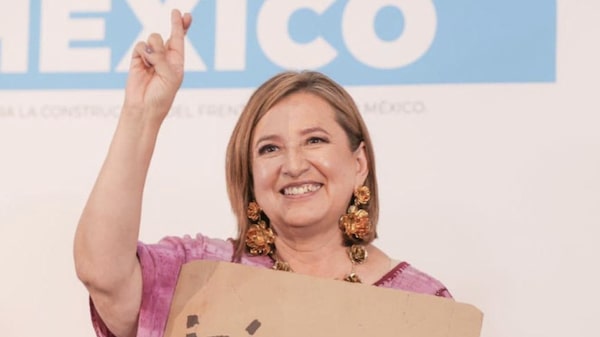Mexico City — The Dos Bocas refinery began producing fuel for the first time on Friday, according to Mexico’s President Andrés Manuel López Obrador, 14 months after he inaugurated the facility located in Tabasco state, and which he has championed as one of the major infrastructure investments of his six-year term.
“Today the new Dos Bocas refinery will start producing oil products, today it begins to produce,” AMLO stated during his fifth annual government report, which he delivered from the state of Campeche.
The politician, who hails from Tabasco state, added that by the end of 2023, Dos Bocas will be producing an average of 290,000 barrels of fuels per day.
Dos Bocas was inaugurated on July 1, 2022 without producing a barrel of fuel because, according to the authorities, the project was still in the operational testing phase. The project reached its first anniversary since completion in 2023 but without having started production. AMLO said that the refinery would be ready by November of this year at the latest.

The goal of the refinery is to help achieve self-sufficiency in gasoline and diesel for the country and lower fuel prices to consumers by the end of AMLO’s six-year term in 2024.
The Mexican president promised at the beginning of his six-year term that the seventh refinery of Petróleos Mexicanos (Pemex) would cost $8 billion to build, but the project has cost a total $15 billion, according to Energy Minister Rocío Nahle García in an interview with Bloomberg Línea.
The cost increase, said Nahle, corresponds to additional works for the refinery such as an electricity generation plant, a gas pipeline, an aqueduct, as well as road works.




